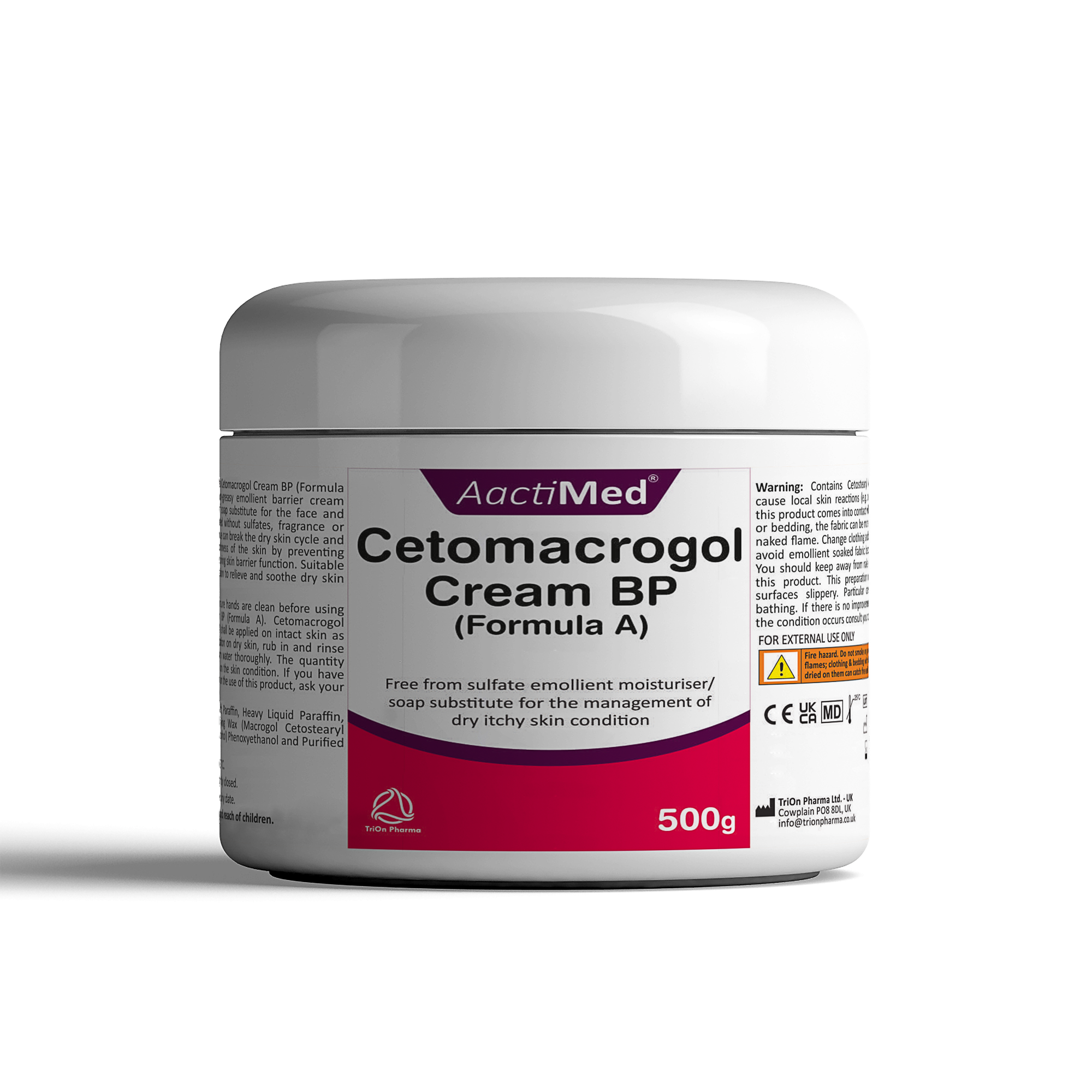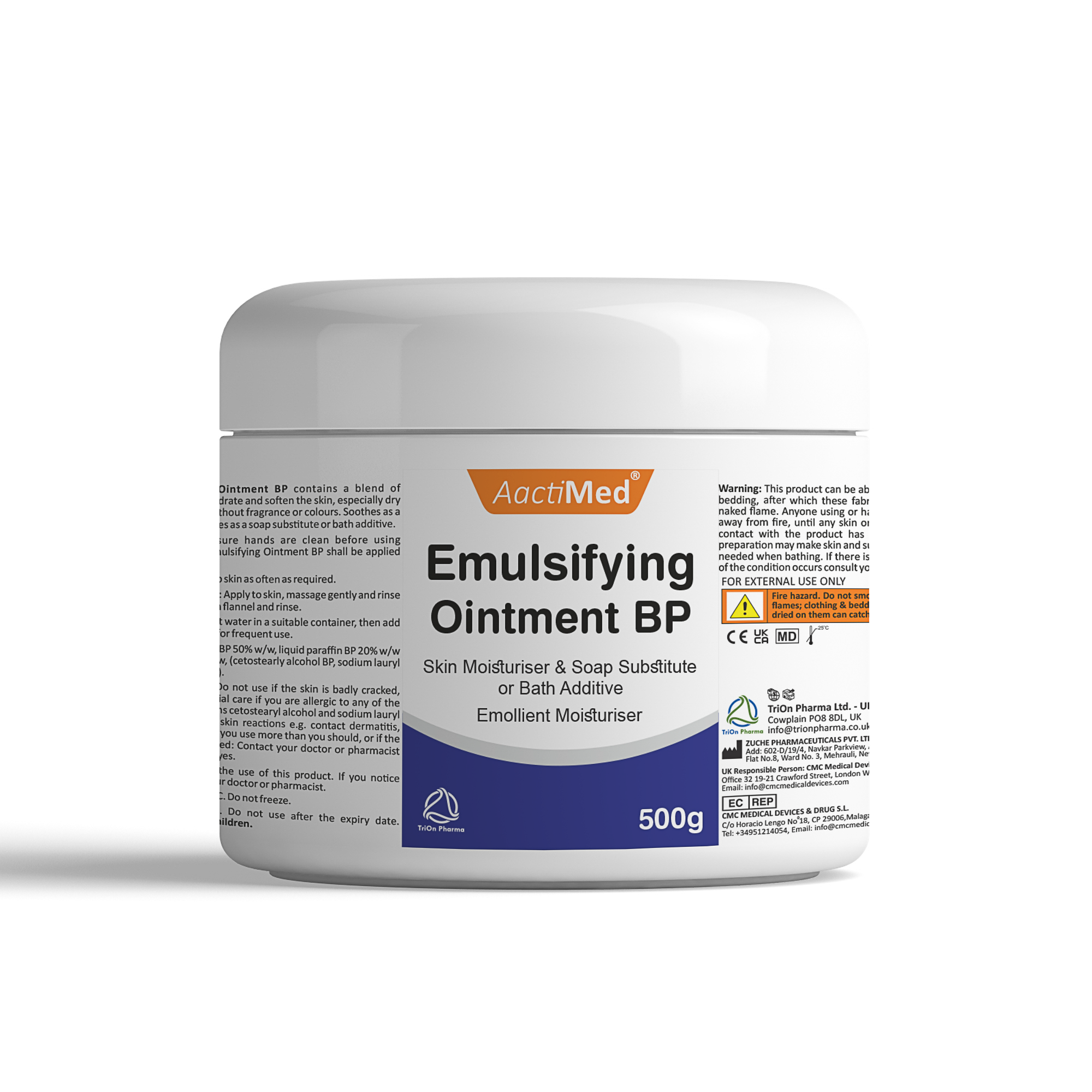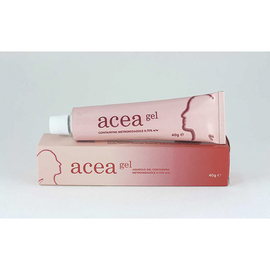
AactiMed Cetomacrogol Cream BP (Formula A)
500g, £2.89

The professional's guide to product selection

500g, £2.89

500g, £3.96
28 tablets: 50mg, £CS; 100mg, £CS; 200mg, £CS

40g, £CS
10mg (60), £CS; 25mg (60), £CS
30g, £6.26; 60g, £12.28
25ml, £38.30

20g, £2.47; 25g, £2.89
20mg/0.4ml solution for injection in a pre-filled syringe, £CS; 40mg/0.8ml solution for injection in pre-filled syringe or pre-filled pen, £CS